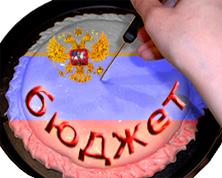Financial University under the government and Institute of economic forecasting (IEF) RAS has sent the government proposals for the restoration of GDP growth within one to two years, the newspaper “Kommersant”.
According to the newspaper, the report of the financial University and RF Academy of Sciences, signed by academics Michael Eskindarov and Victor Evandera, was sent to the government office July 20. The document consists of a report of INP and a working paper of the financial University.
In its conclusions, the report largely coincides with proinflationary programmegemeinsame club. The financial University, however, goes even further, demanding a return to fiscal policy 1992-1994.
With the work of the Economic Council under the President, which, recall, is to develop a strategy for 2017 and later established a working group under the leadership of former Minister of Finance, head of the Center for strategic research (CSR) Alexei Kudrin, according to the publication, the document is not linked.
As a measure that will ensure the GDP growth, experts point to the undervaluation of the ruble to the dollar. The recommended rate is 75 rubles per dollar. As a way a way to ensure and at the same time the means of the organization growth it is proposed to use unsecured issuance in the $ 3.6 trillion rubles a year.
Among the proposals of the financial University – introduction control over the movement of capital up to the “reserve currency special transit Bank accounts of the importers. It’s practically the Venezuelan policy of “critical imports” which should be “a priority”, says the author of the material.
In General, the proposed ideas are emphasized alternative to the current exchange rate of the Ministry of Finance and the financial-economic bloc of the government. Most likely, the stiffness of the initiatives of INP and Miniuniversity – a kind of pressure on the authorities to demonstrate dissatisfaction with the academic community constant the government of ignoring the more lenient recommendations of economists ran on current issues.







